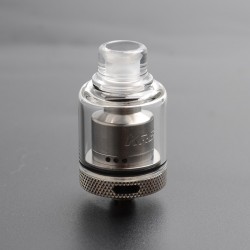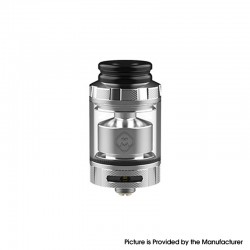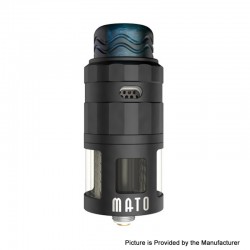This article is not just for one pathogen. The various exists for countless years, not from this year. It was incorrect to pay no attention to personal hygiene in the past, and the following should be done right now. Now there is no need to be over-reacted, and it is enough to follow the rules below. Three major elements of infectious diseases: source of infection, route of transmission, and susceptible population.
Isolating patients and sterilizing the environment is to control the source of infection. Wearing a mask and washing hands frequently are blocking the transmission route. Vaccination is to protect susceptible population
Away from the Source of Infection
- During the outbreak period, do not go to crowded places, especially indoor
- Do not contact animals under unknown circumstances, including wild animals and stray animals. Choose the poultry, meat and eggs, which are correctly quarantined, slaughtered, transported and sold. Install window screens to prevent mosquitoes and flies to avoid mosquito-borne diseases and diarrhea.
Wash Your Hands Frequently
- Change your clothes and shoes when you arrive at home. Wash your hands and wipe the faucet and door handles to ensure your home is clean.
- Do not rub your eyes and nose with dirty hands any time. You can carry a small package of disposable hand sanitizer or disinfection wipes outside.
- Divide the home into the polluted, semi-polluted and clean area.Define the contaminated area within 1 square meter where you first enter your home Change your clothes and shoes in this area. Put a cabinet or a hanger close to the door, hang your coat, shoes and keys here. Do not bring these belongings to the living room or bedroom. If there are dirty things under the shoes, it doesn’t matter, the virus could not creep. After washing your hands, don’t touch the coat and shoes again. If you do so, wash your hands again.
- After shopping, put all things down, change clothes and shoes, wash your hands, organize things, and wash your hands again.
- Wash your hands before and after each meal. The cutting boards and the knives for cooked food and fresh food should be separated from each other. When you t ouch the fresh food, wash your hands again before you touch the cooked food.
- Use hand sanitizer or soap for washing hands, and detergent for vegetables and If the meat is needed to be washed, please wash under a slow water flow or in a basin to avoid water splash spreading bacteria all over the kitchen. Do not wash eggs and meat before storing. If you need to do so, wash them before eating.
- Cooked and un-cooked food should be placed in different slayers in the Cookedfood should be covered or bagged. Wash your hands before taking cooked food.
- Wash your hands before each meal.
- Wash your hands after using toilet every time.
- Wash your hands after taking care of patients at home (referring to infectious diseases, no matter what types of diseases).
- Wash your hands after touching your pets and clean up their feces. The dog should wear a mouth guard in case they accidently eat uncertain objects during a Wipe the dog body and then open the door when returning. Clean the dogs’ paws at the door and wash your hands after. The mouth guard and rope should be placed at the door. The cat should be in- housed.
- After picking up a parcel, unpack it at your door. Do not take it to the living room or bedroom. Wash your hands after removing the packaging.
Wearing Face Mask
- Face mask can prevent you from pathogens. People who have exposed to other patients should wear masks whether or not they have symptoms to avoid transmitting diseases to their family during the incubation period. People with or without respiratory symptoms should wear a mask first to prevent infecting their
- If everyone wears a mask and covers their face with own elbow or paper towel when sneezing or coughing, it will not cause aerosol transmission. Therefore, wear a mask when entering an indoor place during an outbreak. When everyone wears a mask on a train, and do not touch their eyes, mouth and nose with dirty hands, the risk of transmission is not high.
- Masks can protect you against droplets. The spread of droplets would not exceed 2 meters. Wear a mask when you stay a distance less than 3 meters to others, or when you are entering a patient’s room.
- If you need to reuse the mask, it is recommended to dry and heat it at 60 ~ 80 “C, or hang it in a ventilated place to dry. Ultraviolet rays are also useful, but you need to check its intensity and avoid being hurt.
- In the hospital, you can wear N95 masks. However, in your daily life, you only need medical masks or disposable masks. You don’t need to wear masks in an open environment.
Clean the Surface of Objects
- Wipe your phone every day.
- According to the factors such as the frequency of entry and exit, every 1 to 3 days in normal seasons, or 1 to 3 times a day during the flu season, wipe the surfaces of door handles, window handles, and desktops that are often in contact. It is better to repeat it with soapy water, disinfectant (diluted with 84 or 75% alcohol), and clean water. Soapy water and clear water may be enough in daily life. Be aware of the risks of electric shock and fire.
- The so-called transmission through the sewers, in most cases, it means that the virus enters the bathroom through the sewer, falls on a smooth surface that can be touched by human hands. When you touch your face or eating without washing your hands, you may be infected. Therefore, washing your hands after using the toilet can「educe the risk. In addition, you must clean the frequently touched areas in the toilet. Remember that disinfectant with sodium hypochlorite and toilet cleanser with hydrogen chloride cannot be used/mixed together.
- Do not clean the surface where you cannot reach. Normal washing and drying clothes are enough.
- If it is convenient to clean the outer packaging of objects, please do so. After you buy it, you can wash it and store it. If it is inconvenient to wash, please pile them to reduce the daily contact. Viruses will be inactivated after a period of exposing into the open air.
Open Windows Frequently for Ventilation, Do Not Turn on Central Air-Conditioning in Contaminated Areas, and Keep Appropriate Humidity
- You can avoid aerosol transmission in daily life when you do above. This can be done because it is possible to achieve aerosol transmission through central air conditioning in poorly ventilated rooms. Don’t freeze yourself and turn on the electric heater.
- Opening the window for ventilation can dilute the “concentration” of the virus suspended in the air quickly, which actually reduces the infection activity and quantity of the virus. The virus cannot remain active for a long time after leaving the host, and it can keep active for a long time by adhering to the suitable surface. There is no virus will drift in the wind from a long distance.
- Let the room be in the most comfortable humidity range of us, so that our own mucous membranes can run their natural immune function better. High humidity can also reduce the ability of small droplets with viruses to spread, allowing them to become larger droplets and settle faster. But too much humidity can easily breed bacteria and fungi. Just feel comfortable.
About Fecal-Oral Transmission
- Wash your hands every time you after using the toilet.
- Heat the food thoroughly before eating. Clean and prepare the raw food/fruits carefully by yourself. Don’t order takeaway foods like salad, cold drinks, etc. If you want to drink iced milk tea, just take the hot tea home and reheat it, then cool down and add ice. You should produce the ice by pure water at home. Don’t put the ice tray at the same layer with the raw meat. There is previous news about the ice contains more E. coli than the standard in some beverage shops.
- Put the toilet lid on every day and flush the toilet with lid close after using it. Sometimes an aerosol is formed in the toilet (but that’s your own), which can be avoided by covering the toilet lid and flushing. The flushing method of squatting pits usually does not form aerosols. Toilets need more ventilated. The doors can be normally closed whereas the windows can be opened. Wipe the seat, the inside and outside of the toilet lid where may touch the human body.
- If a U-shaped pipe is installed in the sewer, a section of water will remain at the bottom ofthe U-shaped curve, which can prevent the air in the pipe from entering the toilet. Every time the toilet is flushed, a little more water will flow down to form a water seal. Pay attention to the water seals everywhere. Don’t let the water dry, you can also add a little diluted disinfectant in it.
- For toilets without water seals, do not turn on the exhaust fan with the doors and windows closed to avoid the formation of negative pressure and draw the air in the sewer into the bathroom. The window should be opened when the exhaust fan is turned on. If you are afraid of the virus-laden air coming from the drain, you can pour some diluted disinfectant into the floor drain and place a tight plastic bag filled with water on it.
Reduce the Risks of Eating Together with Others
- Use public chopsticks to prevent mouth-to-mouth transmission diseases.
- Eat without talking.
- If there is a patient with infectious disease (no matter what kind of infectious disease) at home, you can eat at different tables before his recovery, or the patient could have meal after other family members leaving the table.
- You can buy a disinfection cupboard.
Other
- About aerosols
(1) According to current research, only tubercle bacillus, measles virus, varicella-zoster virus can achieve aerosol transmission in daily situations, and there are vaccines to prevent it.
Other pathogens cannot form aerosols (such as parasites), or can only form aerosols in specific circumstances, and cannot be a route of transmission in daily situations. Always open windows for ventilation and wear a mask when entering a place where ventilation is impossible, to avoid aerosol transmission.
(2) For diseases other than tuberculosis, measles, and chickenpox, aerosol-borne infection risks are only possible if they are in the same confined space with the patient / successively for a short period of time, and neither of them wears a mask. Therefore, we must avoid crowds, and we cannot avoid wearing masks when we gather. During the outbreak, wear a mask to a place with poor ventilation, such as a supermarket.
(3) Aerosols are not so scary. The dentist’s equipment can efficiently form aerosols (more powerful than ordinary central air-conditioning and toilet flushing), but the dentist usually does not need to wear a protection suit in daily working. People who live in the epidemic area during the outbreak period can suspend oral dental care for non-emergency cases.
(4) In daily life, the risk of aerosol is mainly by inhalation. Patients wear masks to avoid leaving aerosols in the room, where others wear masks to avoid inhalation. Ordinary masks are enough in daily life to block aerosols in the room. Ordinary masks can block droplets and medium to large size of particles. They cannot block very small particles; however, the form of small particles means that the virus will be inactivated soon. It is difficult to reach the infection titer through the part of the mask. When medical personnel perform intubation, extubation and other operations, the infection titer of the generated aerosols will be much higher than those generated in our daily life, so N95 must be used for protection in medical operations.
(5) if you really want a high level of protection against aerosols, you need to dress as a medical staff in a protective suit, so it is not applicable in daily life. Do what we can do and let the god makes the decisions. - About the parcel delivery
Take it normally and wash hands after unpacking it. Norovirus is much more robust than coronavirus, but few cases have been found infected by taking parcels. - About UV lamp
As mentioned in the mask re-use section, my personal opinion is that there is no need to buy a UV lamp. If you have to buy it, please check the parameters such as light intensity. Do not open it when people are in the room because it may cause severe damage to the retina and skin. - About heat disinfection
Avoid excessive temperature damage to items. It is not recommended to use an oven or steamer. You can buy a small oven or pot to heat things other than food. - About the news
Most journalists are not biological basis, and the experts’ words they repeated often tend to be biased, they often care about media exposure rate rather than truth.
Don’t be panic after reading the news. We human have defeated many even more powerful and fetal pathogens all over the world in history. This one is not more fetal than them. - About emotions
Anxiety and panic are harmful to health and will influence your immunity. Try to adjust your emotions as much as possible. It is useless to overthink. Don’t think about what you cannot do and just do what you can.
Now 3FVAPE has begun to provide Facial Mask for Novel Coronavirus Prevention, which protect yourself against COVID-19 disease.
Author:
Written by famfamfam from Sina Weibo. “Tips for Self-Protection From COVID-19” . https://weibo.com/1114030772/Itifn1afC?type=comment .
Translated by Fugui Ling from Sina Weibo. “Tips for Self-Protection From COVID-19”. https://weibointl.api.weibo.cn/share/132316860.html?weibo_id=4483461106431020 .
Recommendation From 3FVAPE >>
 |
 |
 |
 |
 |
 |
| BUY IT NOW↗ | BUY IT NOW↗ | BUY IT NOW↗ | BUY IT NOW↗ | BUY IT NOW↗ | BUY IT NOW↗ |
FOLLOW US
Health-Care-Protection.jpg)